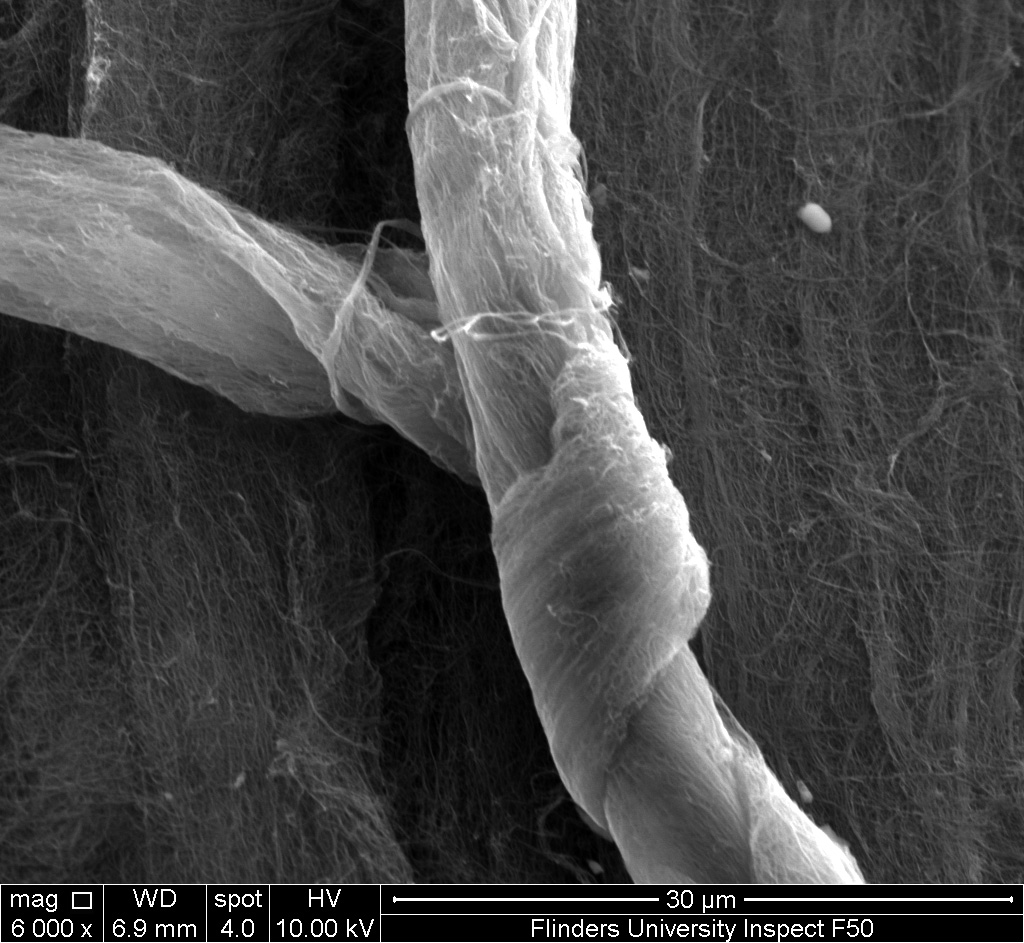Microscopy Australia’s University of South Australia (UniSA) facility, the Future Industries Institute, works in collaboration with both the Department of Defence and businesses in the local defence supply chain to develop world-leading defence technologies.
In the maritime sphere, our microscopes have been used in the development of future battery technologies specifically for naval applications. Microscopy is also used in failure analysis of components from the existing submarine fleet, to improve parts and prevent future failures.
On the ground, our microanalysis equipment has been used to explore the chemistry of experimental camouflage devices for military vehicles that respond to the environment in a chameleon-like fashion. Our Flinders University facility was also crucial in the development of the world’s smallest X-ray machine, developed by Adelaide company Micro-X. This can provide portable medical imaging in combat situations and serve as a useful tool in border security. Micro-X has also been supported by fellow NCRIS project the Australian National Fabrication Facility.

Scanning electron micrograph of a carbon nanotube bundle used in Micro-X’s X-ray devices.
Our microscopes are also being used in the development of emerging space technologies. For example, a current project funded by the Defence Innovation Partnership Scheme is focusing on expanding intelligence, surveillance and reconnaissance capabilities by developing bespoke optical components for deployable space telescopes on small satellites. Small satellites are leading the way in new satellite technologies due to their lower cost and compressed launch schedule. Another small satellite project is using our microscopes to develop 3D printed thermal management devices.
March 30, 2022